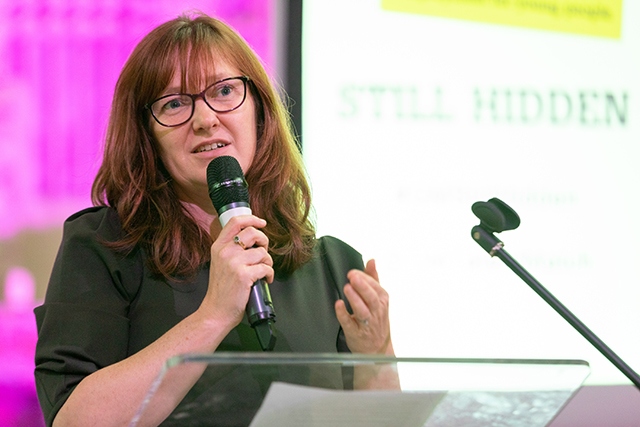More and more youngsters finding themselves 'hidden'
Date published: 17 October 2018

Marie Graham, Programme Manager at Greater Manchester Talent Match
New research has revealed that over 21,000 unemployed young people across Greater Manchester are surviving without state support to find work.
This figure features in Still Hidden, a report by Greater Manchester Talent Match, a Big Lottery-funded programme that has been offering one-to-one, long-term support to unemployed young people across the region since 2013.
GM Talent Match refers to this overlooked demographic as ‘hidden young people’.
GM Talent Match has deliberately targeted supporting hidden young people towards employment, but the majority of employment support programmes target only ‘known’ young people: those claiming out-of-work benefits.
With the GM Talent Match programme ending next month, there are concerns over what future regional support for hidden young people will look like.
Marie Graham, programme manager for GM Talent Match said: “For a city region of Greater Manchester’s status and ambition, it isn’t acceptable to have young people fall through the cracks with their potential and ambitions unrealised.
“Yes, many hidden young people have multiple barriers to finding employment but with the right support these can be overcome and young people can find work.”
The reasons behind young people’s decisions not to claim benefits were first explored by GM Talent Match last year.
They discovered barriers including offending histories, the stigma associated with claiming benefits and confusion around the claiming processes.
Their latest research paper, Still Hidden, focuses on a subgroup of hidden young people who remain living at home with parents, often after low performance and/or disengagement at school/college.
At home, without initial pressure to find employment, a cycle of social isolation forms, whereby a lack of exposure to career building activities leads to a decrease in confidence.
As a result of this, these hidden young people are known to develop confidence and mental health issues.
Marie Graham explained how GM Talent Match has tailored its support for hidden young people.
“GM Talent Match has a proven model for identifying hidden young people and supporting them towards and into employment. 25% of the 2,000 young people we’ve engaged with have been hidden,” she said.
“Our support workers are called Talent Coaches.
"They work for community organisations who understand the needs and barriers faced by diverse local populations.
"Hidden young people are often naturally reluctant at engaging with support.
"However, they have told us that prior knowledge of a Talent Coach’s face or reputation means they are more willing to work with them.
“Our Talent Coaches’ smaller caseloads and flexibility have also enabled them to work holistically to address hidden young people’s complex needs.”
Across Oldham, young people are supported by Talent Coaches employed by Groundwork BBOR and Upturn Enterprise.
This community-based approach is one of a series of proposals made by the Still Hidden report.
Other recommendations include:
- Local Authorities should track young people past the mandatory age of 18 and where possible should share the activity and destination of young people with partners
- All employment support programmes targeting hidden young people should include mental health support and access to these services.
- Young people who are identified as being at risk of becoming hidden should be targeted to receive intensive careers education advice and guidance (CEIAG) before leaving education.
Do you have a story for us? Want to tell us about something going on in and around Oldham? Let us know by emailing news@oldham-chronicle.co.uk , calling our Oldham-based newsroom on 0161 633 2121 , tweeting us @oldhamchronicle or messaging us through our Facebook page. All contact will be treated in confidence.




